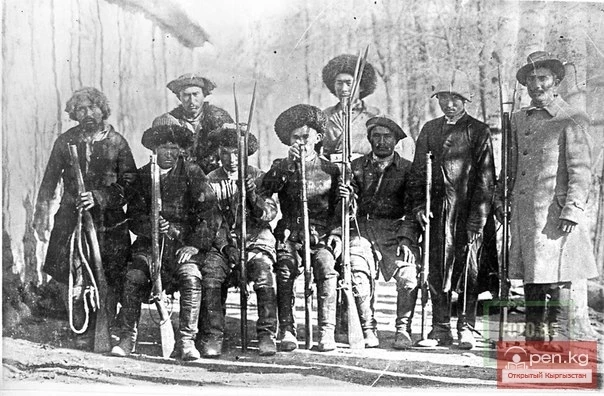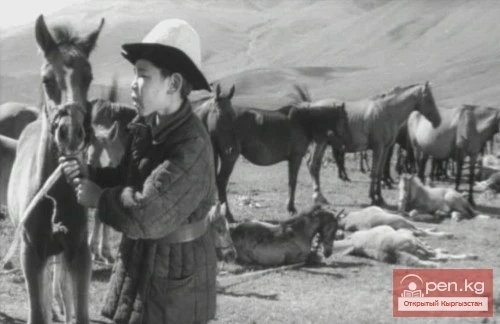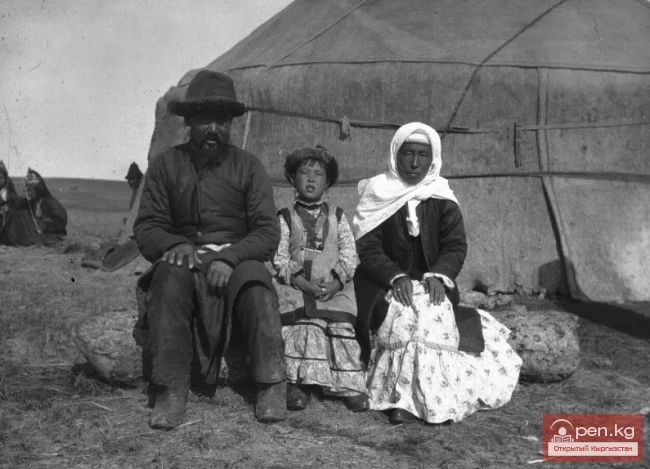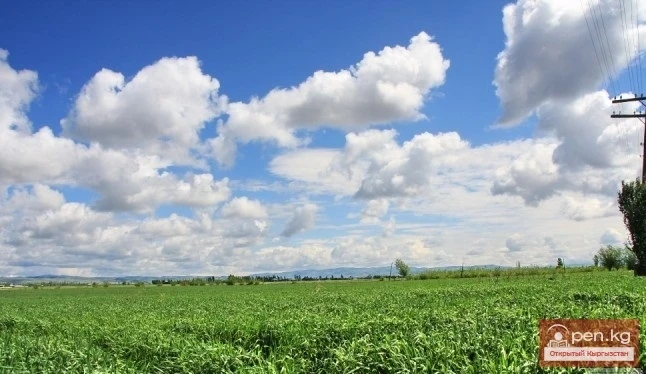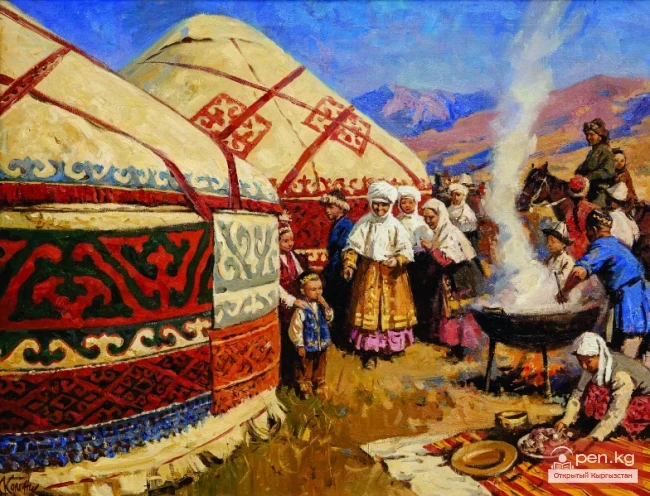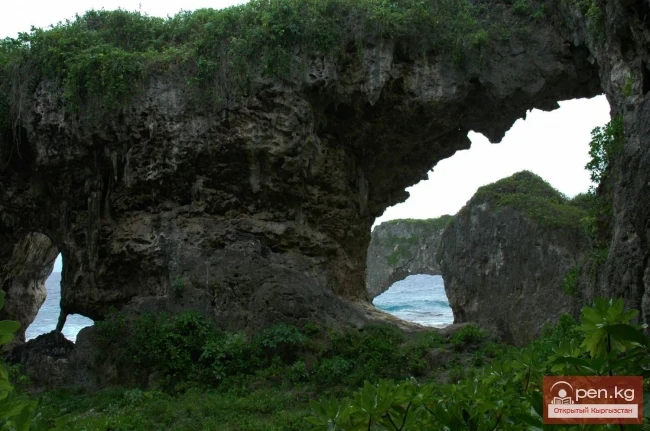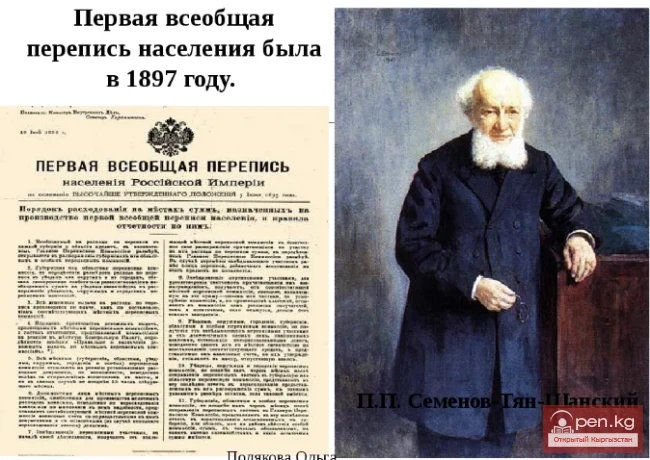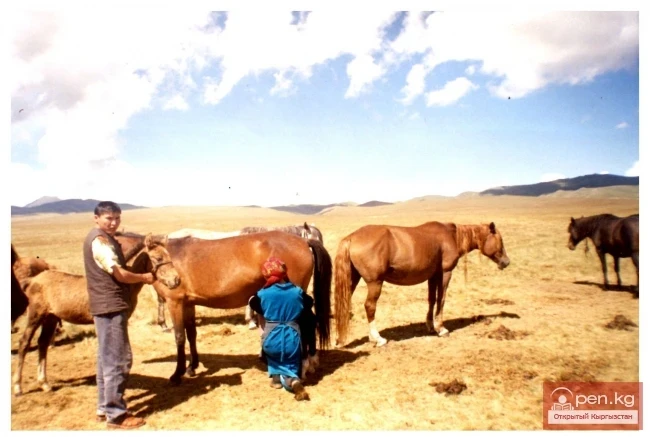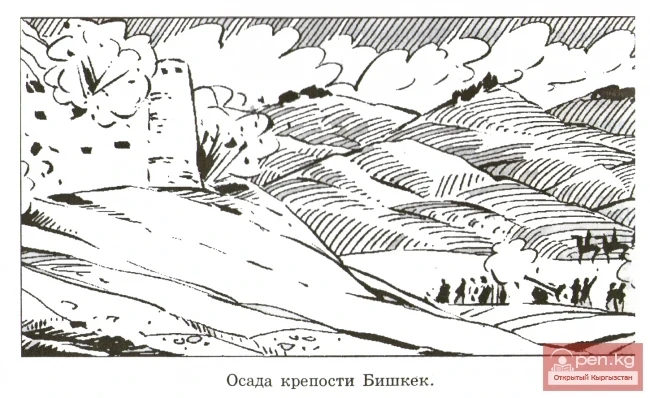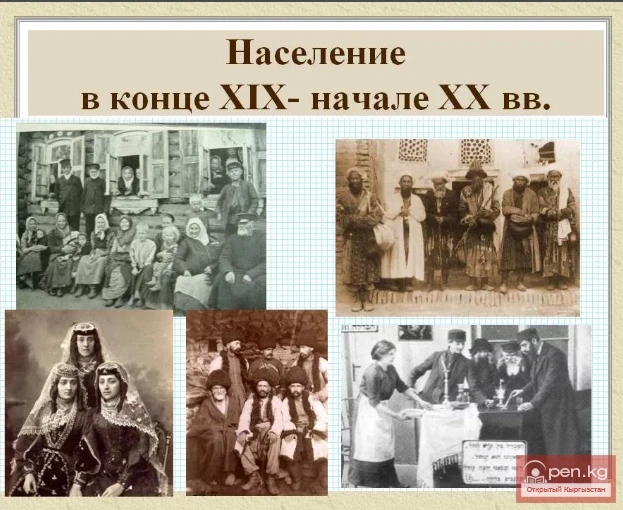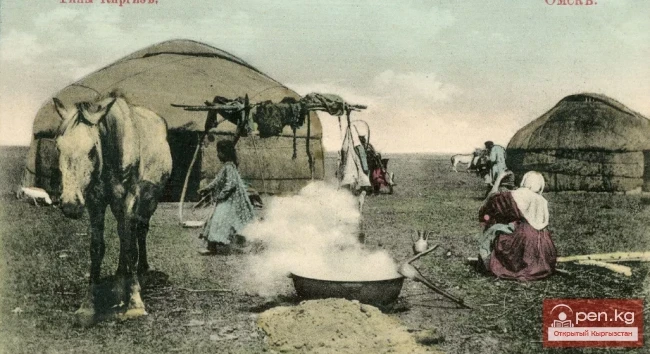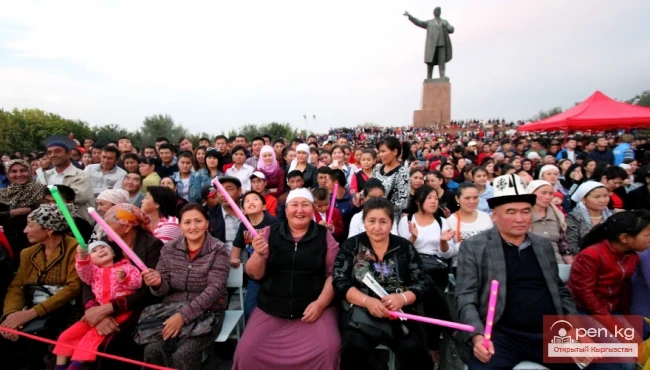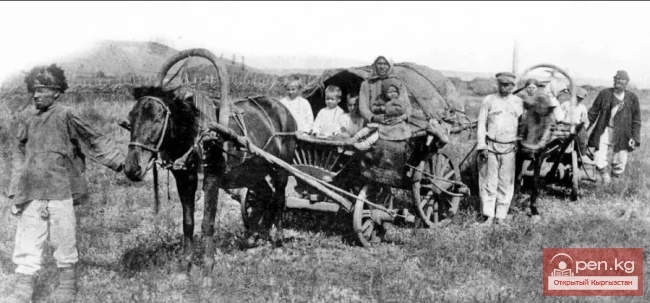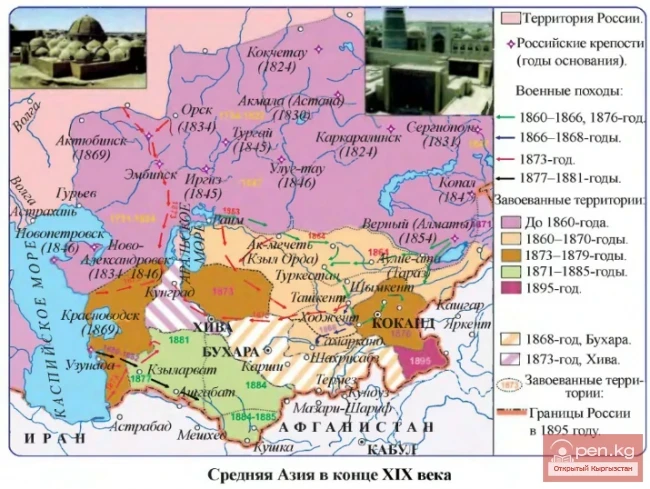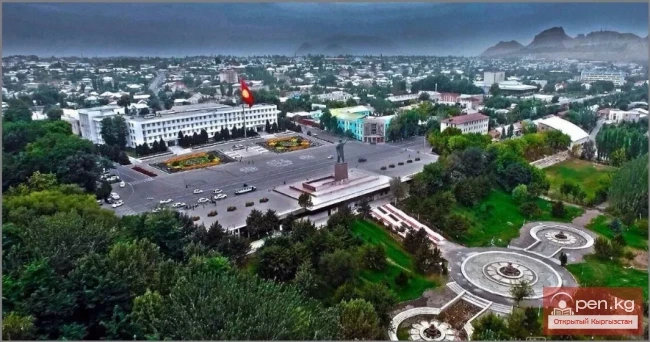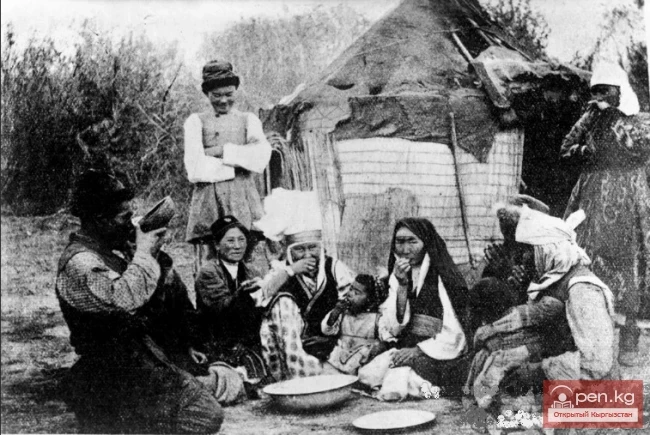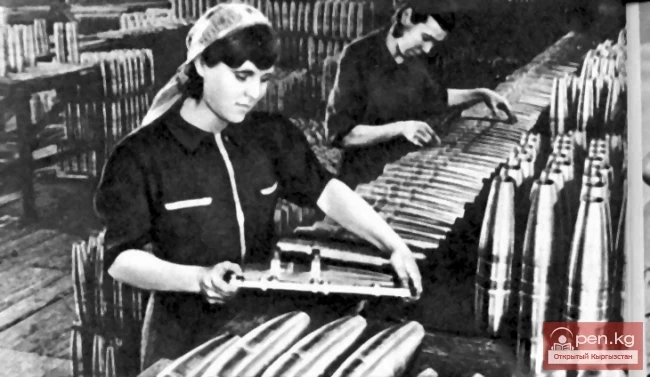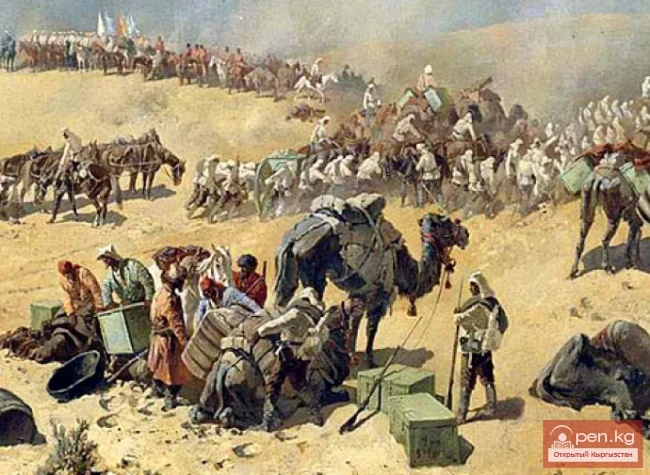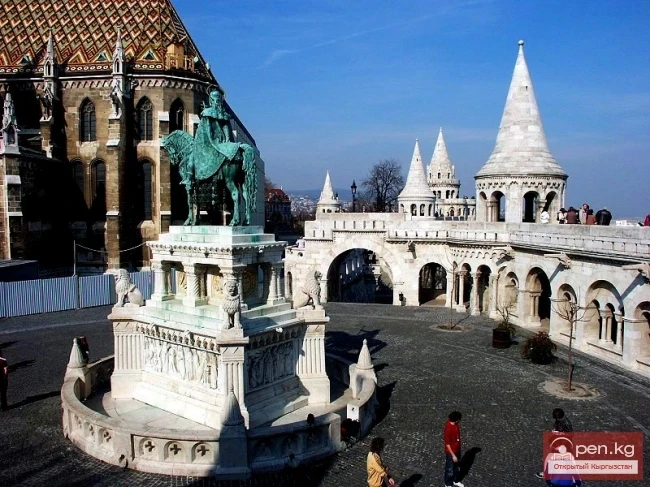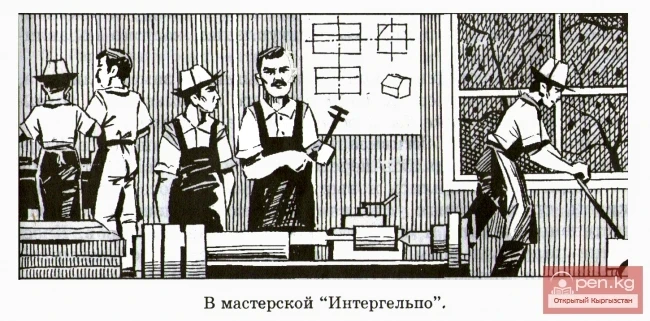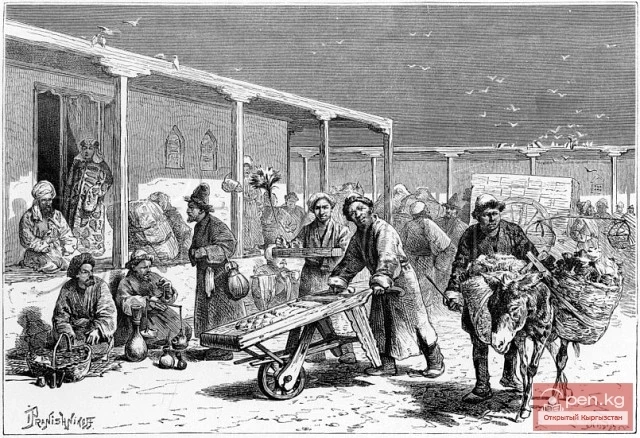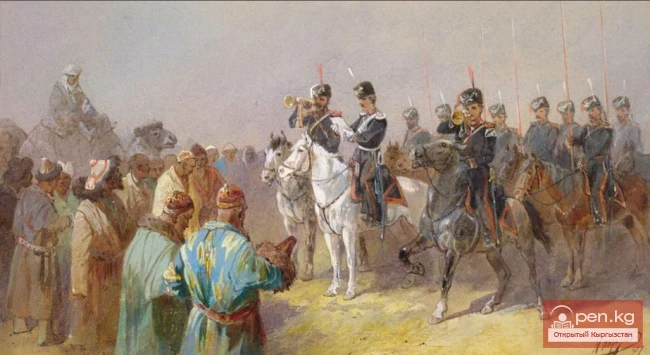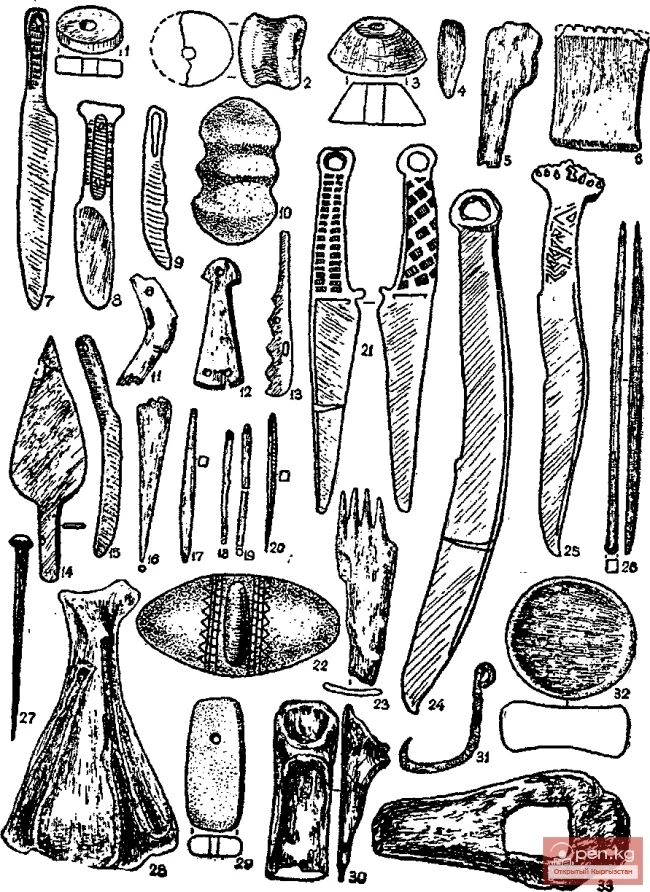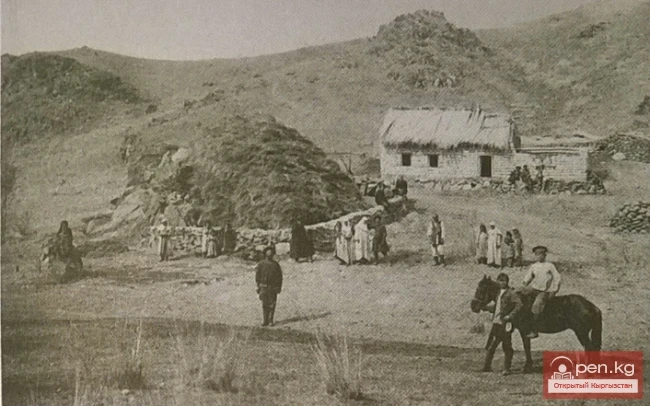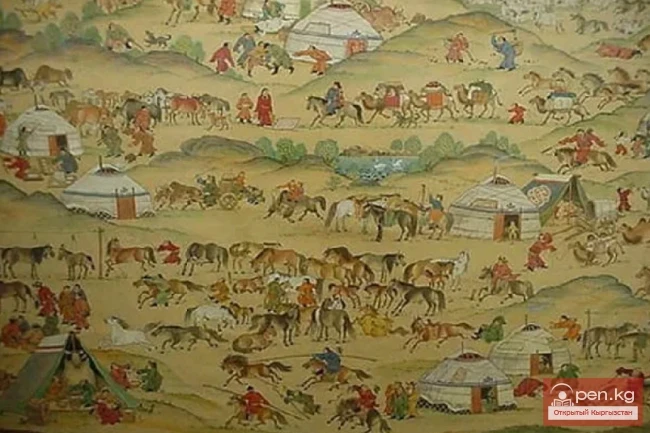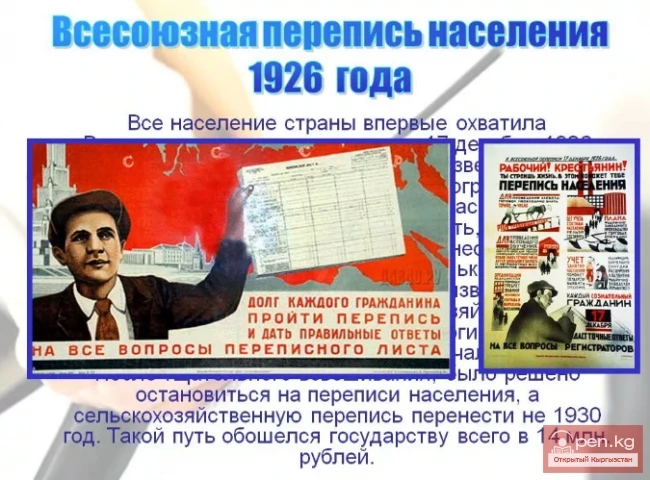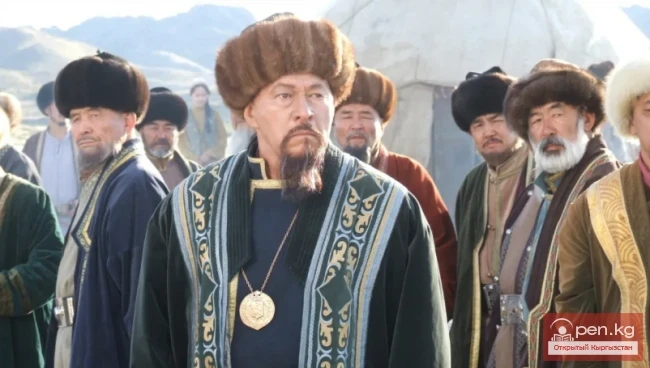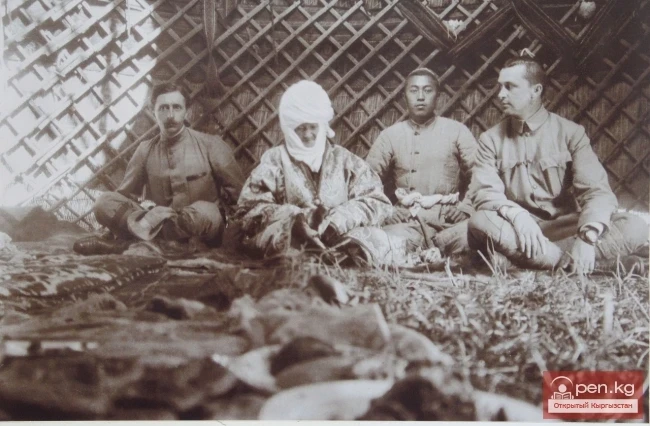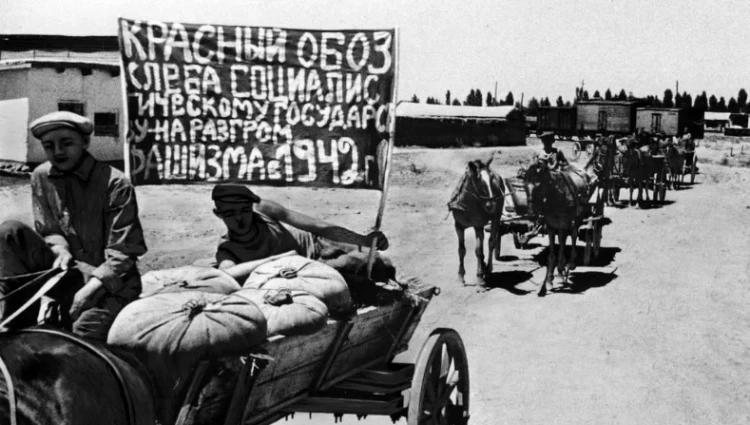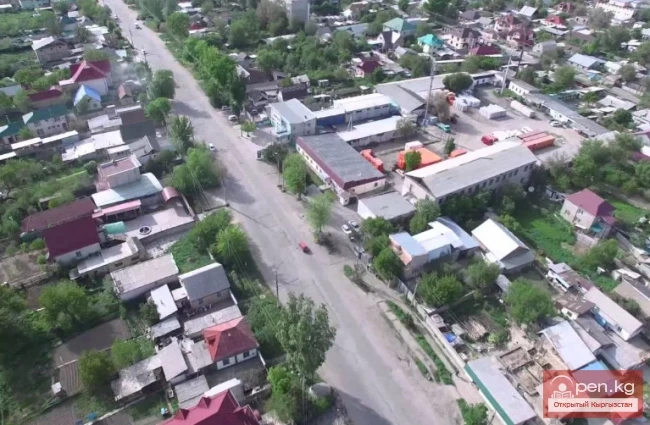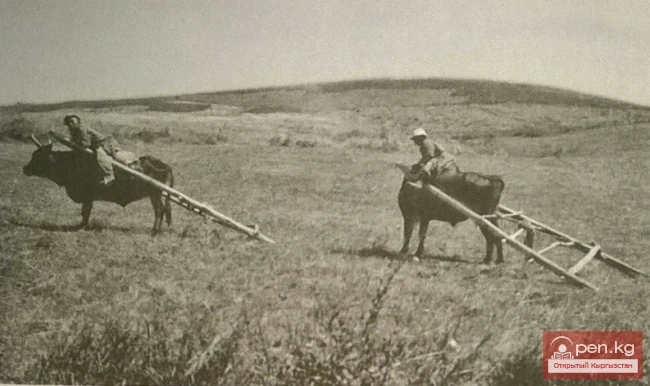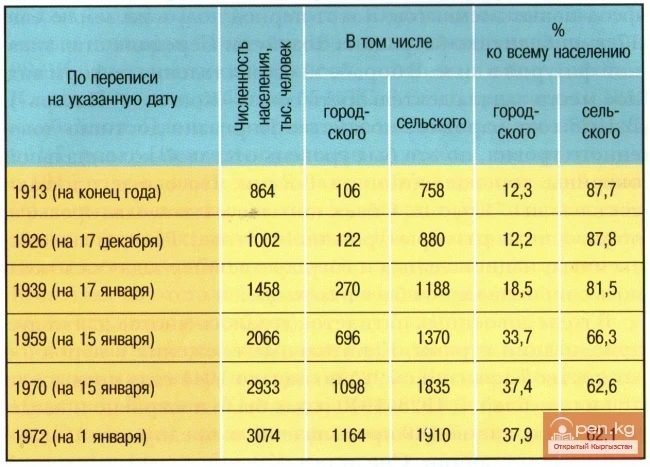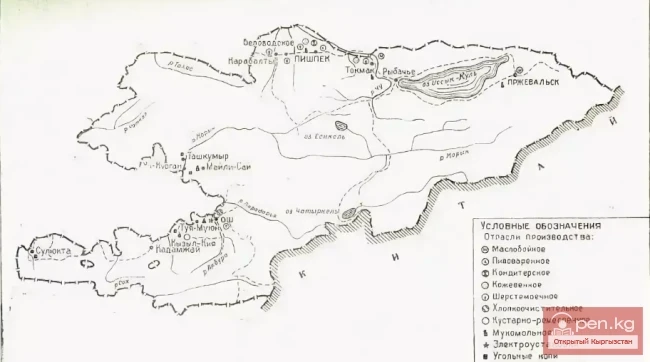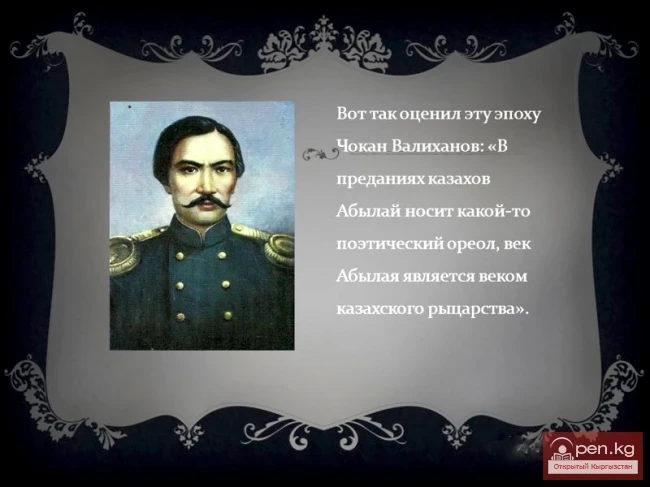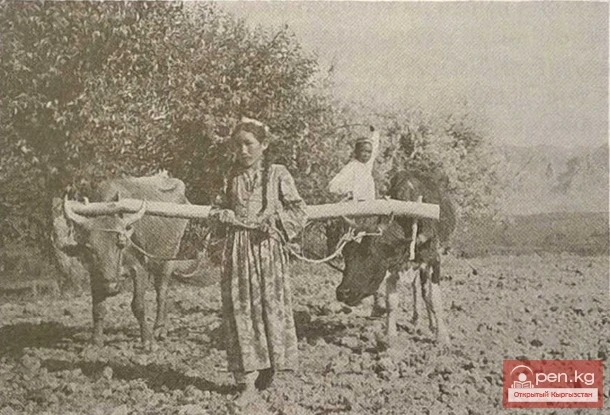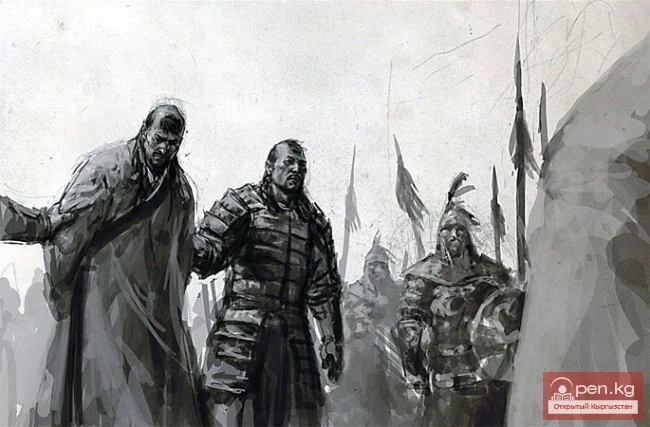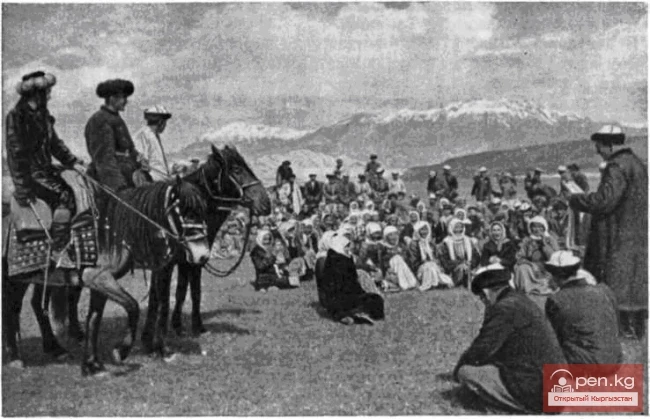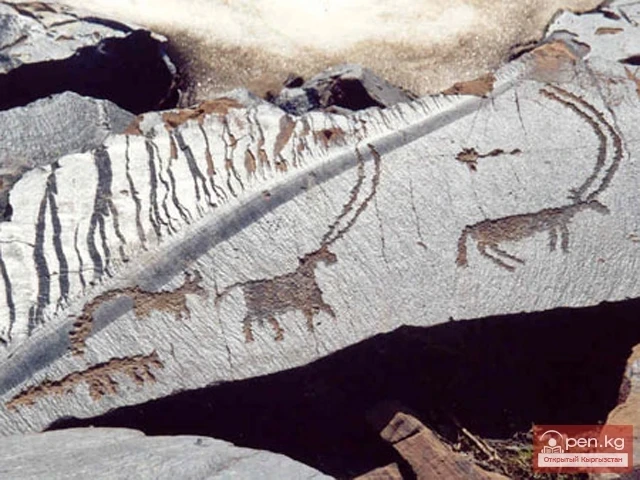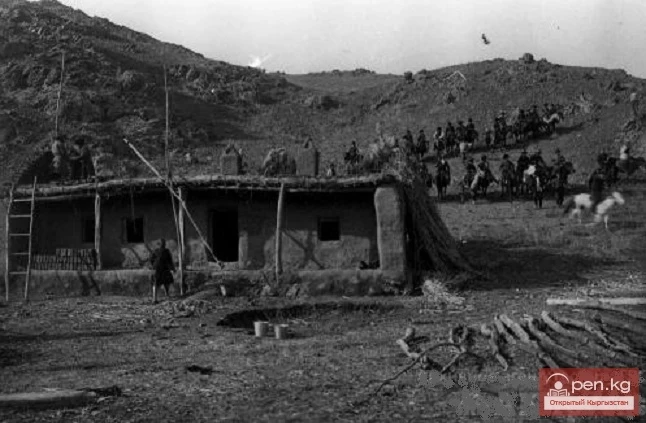
Economic Transformations.
In the second half of the 19th century, significant shifts occurred in the development of livestock breeding and agriculture; the population began to engage in gardening, viticulture, and beekeeping. Targeted breeding work was carried out to improve livestock breeds, and the variety of agricultural plants expanded. Internal and external trade reached a new level. After the region joined the Russian Empire, changes occurred in the social structure of the Kyrgyz. Based on their place in society and their relationship to the means of production, the population was divided into two unequal social groups: 1) the bai and manaps, and 2) the bukara, the working part of the population. Large bai and manaps, as the support of colonial authorities, were attracted to the Russian administration and often held positions as volost leaders, elders, or biys. For their merits, the government awarded manaps military ranks and various honors. The laboring population primarily consisted of the so-called kara-bukara - commoners, who owned at most 1-2 heads of small livestock, a cow, or a horse.
The poor were divided into categories: jakyry - the destitute, zhalchy - laborers, zhatakchy - those without horses, malaï - hired workers, mardykery - day laborers, chayrykery - sharecroppers, and so on. A layer of trading bourgeoisie began to gradually emerge from the local population and incoming entrepreneurs. With the development of industry, a working class was formed, albeit in small numbers. Its ranks were constantly replenished by migrants and local craftsmen who had gone bankrupt.
According to the legislative acts of the Russian Empire, the lands of the indigenous population were declared state property, which had significant political implications. From the very first days of governing the Turkestan region, the Russian government effectively became the supreme owner of the land (Central State Archive of the Russian Federation. L. 17-64; Rostislavov, 1879-1980. P. 3). The local privately owned land (milq) was liquidated. The land holdings of the Muslim clergy (waqf) continued to exist (Ploskikh, 1968. P. 46, 62-67). The settled population was allowed to buy and sell land according to both local customs and Russian law. The laws granted the nomadic population land for hereditary use in three forms: winter pastures, summer pastures, and cultivated land. Land designated for pastures and cattle drives was provided for the general use of the region's population.
One of the main occupations of the population remained livestock breeding. In mountainous areas, especially in high-altitude regions, it was profitable to engage in mobile livestock breeding, based on the use of natural forage and associated with lower labor costs compared to a sedentary lifestyle. Residents raised sheep, goats, horses, cattle, as well as yaks, camels, and donkeys. Livestock breeding was mainly extensive. However, many innovations, such as winter feed preparation, the introduction of scientific veterinary practices, and the establishment of veterinary clinics, contributed to the development of intensive livestock breeding.
The migration of Russian peasantry to Kyrgyz lands
